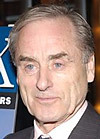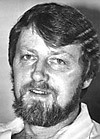Judge says PC-system allegations not libel

A ruling Wednesday in a libel lawsuit rekindled memories of a long-lingering dispute about the true "paternity" of the personal computer operating system that later became the basis for Microsoft Windows.
At issue were statements in Sir Harold Evans' 2004 book "They Made America: From the Steam Engine to the Search Engine: Two Centuries of Innovators." One chapter was devoted to Seattle native Gary Kildall, described as "the true founder of the personal computer revolution and the father of PC software."
Evans, a prolific author and veteran newspaper editor, delved into a controversy dating back to the early days of the PC era: Whether Tim Paterson, another Seattle computing pioneer, copied Kildall's early PC operating system known as CP/M — the standard for the 8-bit Intel 8080 chip in the late 1970s — in designing his own operating system, which was later purchased by Microsoft and became MS-DOS.
In the lawsuit he filed, Paterson denied — as he has done repeatedly — having access to the source code for CP/M while he was building what was called QDOS, for Quick and Dirty Operating System, at Seattle Computer Products in 1980. He acknowledges that his operating system, refined and sold to Microsoft, was designed to be similar to CP/M so programs for the 8080 could run on the next-generation 8086 machines.
But the court Wednesday turned back Paterson's suit, finding that Evans' reporting on the events did not meet the definition of libel.
"The Court finds that Evans' statements that Paterson 'ripped-off' CP/M, or '[took] a ride on' CP/M, are mere opinion based on the facts disclosed in the Kildall chapter," U.S. District Judge Thomas Zilly wrote in his ruling. Zilly found that other statements — a total of seven specific passages were disputed — were "not provably false."
"Evans fully discloses the basis for his statements in the Kildall chapter, and Paterson's dislike for Evans' conclusions does not make them defamatory," Zilly wrote.
Evans' book included both Kildall's and Paterson's views on the issue, though he did not interview either man, relying instead on an extensive written record. Kildall died in 1994.
Furthermore, the judge found no evidence that Evans acted with actual malice, a requirement for a statement about a semi-public figure to be libelous.
The case, filed in U.S. District Court in Seattle in October 2005, was dismissed.
"The author in this case championed Kildall's version of events that we found to be libelous," said Paterson's attorney, Michael Tomkins.
Tomkins said he had not yet discussed with his client whether to appeal the ruling.
The historical significance of Evans' work was not lost on Paterson, who decided to bring a libel case against the author after so much had already been written about the issue.
"Where the other [previous] publications were sort of novels that spoke to what other people's perception was, this particular publication was in fact a textbook and Kildall's autobiography was for the first time brought to the attention of the public with very specific concepts, words and allegations that needed finally to be answered and put to bed," Tomkins said.
Evans was represented by the Seattle law firm of Davis Wright Tremaine, which also represents The Seattle Times.
Benjamin J. Romano: 206-464-2149 or bromano@seattletimes.com

